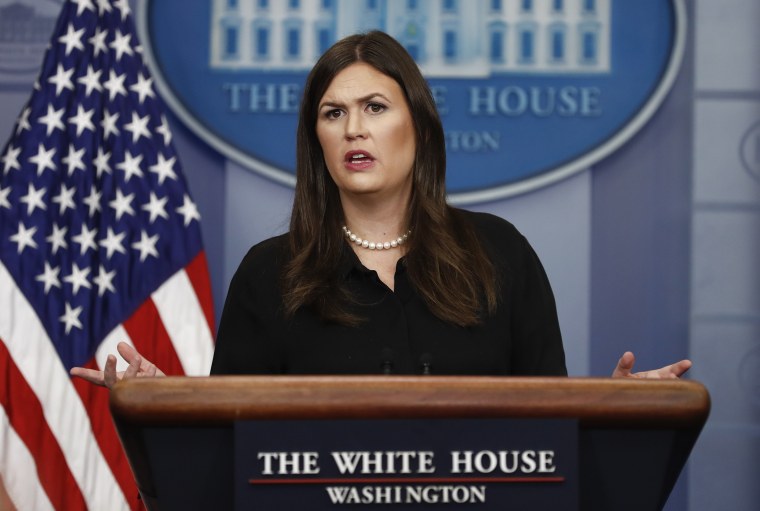The White House's Rob Porter scandal in February was a multi-faceted controversy, but one of the core questions related to security clearances. As Rachel explained on the show at the time, Team Trump struggled to explain why Porter had day-to-day access over highly sensitive, classified materials, despite the fact that he couldn't get permanent security clearance because of his alleged violence toward women.
During the press briefing on Feb. 12, White House Press Secretary Sarah Huckabee Sanders adopted a line that put quite a bit of distance between the West Wing and the security-clearance process.
"Look, this is a process that doesn't operate within the White House. It's handled by our law enforcement and intelligence community. And we support that process. It's the same process that has been used for decades in previous administrations, and we're relying on that process at this point."
Putting aside questions about whether Sanders' line was persuasive, we're now confronted with an entirely different question: are her claims still true?
Because by all accounts, Donald Trump yesterday decided to revoke former CIA Director John Brennan's security clearance unilaterally. Indeed, the president adopted a process that existed entirely outside official channels, to the point that relevant intelligence agencies and Director of National Intelligence Dan Coats were neither consulted nor notified in advance.
I'm cognizant of the fact that the Commander-in-Chief has a unique role when it comes to matters related to national security, and no one has questioned his revocation authority. But it's not at all clear why Trump found it necessary to take this retaliatory step against a White House critic while abandoning his own administration's institutional procedures.
"Look, this is a process that doesn't operate within the White House," Sanders said. The process appears to have made its way quite easily into the Oval Office.
